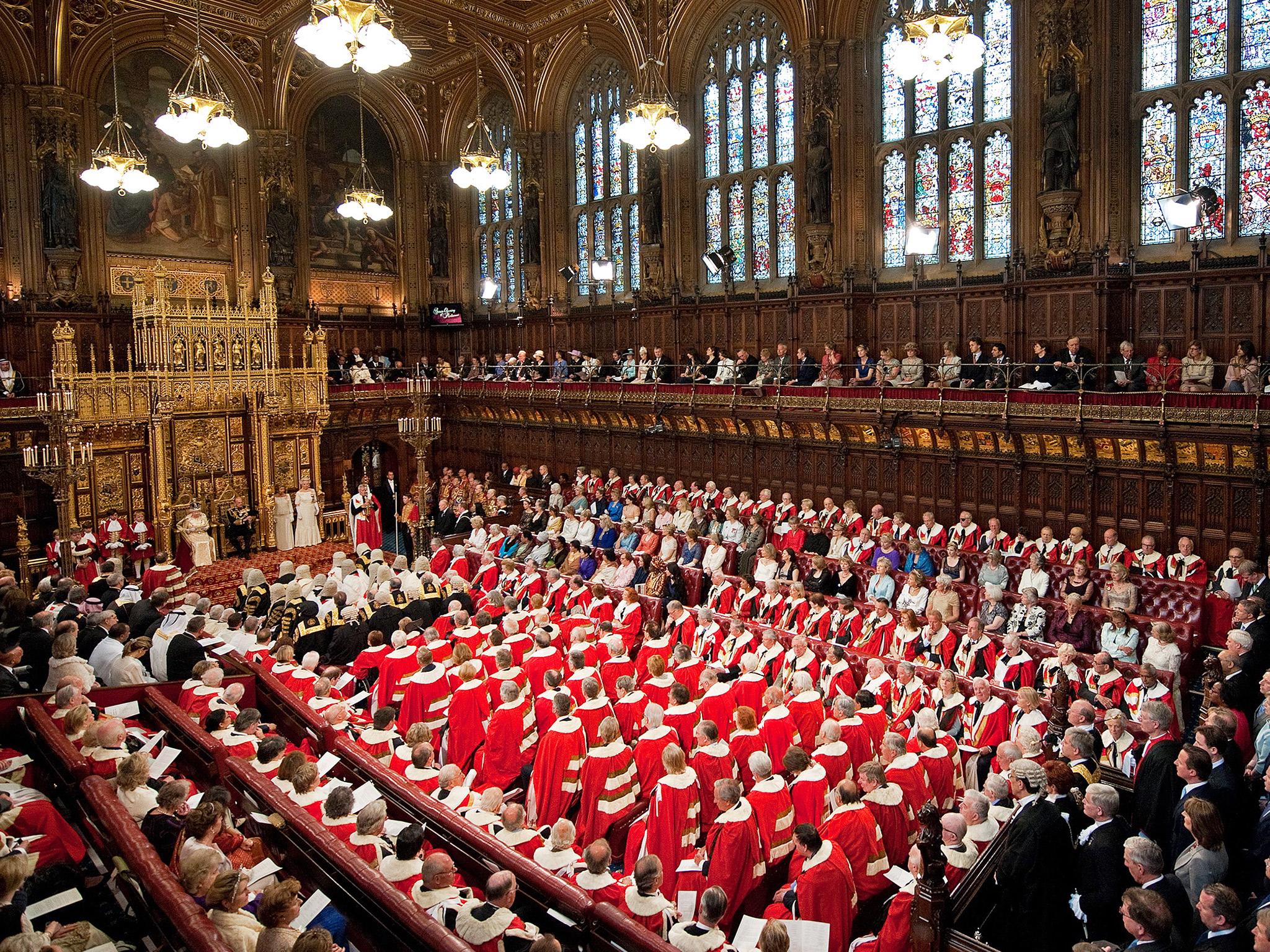House of Lords to debate reducing number of peers after David Cameron’s ‘profligate’ appointments
While Lord Cormack refused to place a number on the amount of peers the Lords should have, he said the upper chamber ‘should be no bigger than the Commons’

Your support helps us to tell the story
From reproductive rights to climate change to Big Tech, The Independent is on the ground when the story is developing. Whether it's investigating the financials of Elon Musk's pro-Trump PAC or producing our latest documentary, 'The A Word', which shines a light on the American women fighting for reproductive rights, we know how important it is to parse out the facts from the messaging.
At such a critical moment in US history, we need reporters on the ground. Your donation allows us to keep sending journalists to speak to both sides of the story.
The Independent is trusted by Americans across the entire political spectrum. And unlike many other quality news outlets, we choose not to lock Americans out of our reporting and analysis with paywalls. We believe quality journalism should be available to everyone, paid for by those who can afford it.
Your support makes all the difference.Peers in the House of Lords are set to debate the size of Britain’s upper chamber, following David Cameron’s “profligate” use of the appointments system on leaving Downing Street.
Lord Cormack, a Conservative peer who chairs the Campaign for an Effective Second Chamber, will move a motion on Monday to “resolve that this House believes that its size should be reduced, and methods explored by which this could be achieved”.
The upper chamber, which scrutinises legislation passed from the Commons, has swollen in recent years. In his resignation honours list, Mr Cameron, the former Prime Minister, handed out 13 peerages to his political allies and aides.
Speaking to The Independent, Lord Cormack, who was a member of Edward Heath’s Conservative administration, said: “Every time people write about the House of Lords they always refer to it as being the largest second chamber in the world, which in fact it is, and the largest legislative body outside the Republic of China, which it is.
“That is a perception that devalues in the public eye the real importance the work of the House of Lords. The level and depth of scrutiny of legislation is frankly remarkable – and is infinitely more thorough than legislation received in the House of Commons.”
While he refused to put a number on the size the House should be reduced to, Lord Cormack said it should be “no bigger than the Commons”, with a minimum of 20 per cent cross-bench peers, and that no single party should be able to dominate the upper chamber. “Underlying all these things is of course is the complete acknowledgement of the political supremacy of the elected House,” he added.
Lord Cormack claims his organisation to reduce the number of peers in the Lords has 300 affiliate members, in both Houses.
Asked what the obstacles facing reducing the size of the Lords were, Lord Cormark said: “Well, Mr Cameron’s profligate use of the appointments system – Mr Cameron has created a lot of peers.
“Our two principles are that we believe very strongly in an appointed and not an elected chamber… we believe very strongly that the great strength of the Lords is its expertise, its experience and the fact that there is no party which dominates it.
“Since 1999 when the hereditary peers left, we have gone up from 666 to… well over 800. On Monday we’re seeking to establish two principles. One is that the size should be reduced and the second is methods should be explored as to how this should come about. We are not trying to get bogged down on specific series of proposals such as retirement age, or attendance requirements.
“We believe that if the House in effect gives an instruction that it wants its size reducing…we are well on our way.”
Join our commenting forum
Join thought-provoking conversations, follow other Independent readers and see their replies
Comments